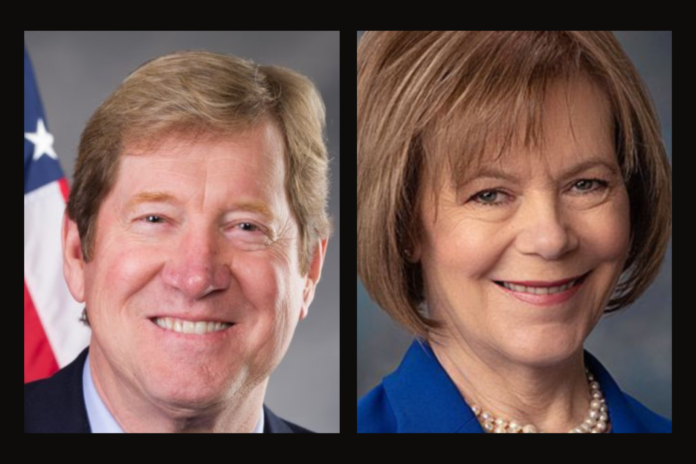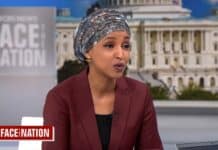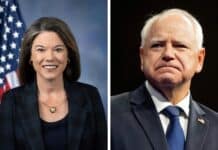With everything else going on Tuesday, Minnesotans intrepid enough to venture to polling places in 80-degree weather also chose party nominees for November’s elections.
On Aug. 1, I penned a detailed preview, and hopefully my analyses conveyed what might occur. There were no real surprises, as incumbents advanced to take on an array of challengers this autumn.
Notable results included:
U.S. Sen. Tina Smith outlasted four would-be competitors to seek her first full term in office. Smith was appointed to the position three years ago and won a special election in 2018 against state Sen. Karin Housley.
Republicans chose former U.S. Rep. Jason Lewis over a few unserious challengers to battle Smith in 82 days. He recently castigated the “accidental senator” on several issues, including her endorsement of controversial first-term Rep. Ilhan Omar.
The outspoken former talk radio host — endorsed this week by President Trump — also took issue with Gov. Tim Walz’s regulations on reopening Minnesota schools two weeks ago. Lewis and Smith already engaged in a wide-ranging debate last week.
In the contentious Fifth District, which garnered national attention and eight-figures in donations, the big question was whether or not Omar could survive. She was challenged by Antone Melton-Meaux, an affable attorney endorsed by the Star Tribune, which excoriated Omar’s ineptitude. The DFL and media went all in to protect the divisive socialist in a battle of traditional liberalism versus leftism.
Though Omar lost by 20 points in the near suburbs, she won big in urban Minneapolis and the (heavily Somali) University of Minnesota area. She now faces entrepreneur and community leader Lacy Johnson, who won the Republican primary in a segregated district where anarchy and national shame followed George Floyd’s death.
Democrats have overseen the Fifth for nearly six decades.
In the suburban Third District’s GOP primary, businessman and U.S. Army veteran Kendall Qualls crushed perennial candidate Leslie Davis. Qualls, who received more than 75% of the vote, goes up against first-term Rep. Dean Phillips in a November race to watch.
Laotian refugee and attorney Sia Lo surprisingly trails fringe activist Gene Rechtzigel in the Fourth District Republican primary. Should results hold, Rechtzigel will now try to flip a district controlled by the DFL since 1949.
Amassing nearly 90% of the vote, incumbent Tom Emmer demolished conservative challenger Patrick Munro for a third time in the Sixth.
Out west, former Lt. Gov. Michelle Fischbach earned the right to take on Rep. Collin Peterson. Endorsed by the president, she easily bested U.S. Air Force veteran Dave Hughes, the 2016 and 2018 GOP nominee, and two others.
The Seventh is one of the most pro-Trump districts in the country and arguably the most conservative in America represented by a Democrat. Peterson, a moderate, has held the seat for three decades.
Rep. Jim Hagedorn and DFL challenger Dan Feehan will again face off in southern Minnesota’s First District. It’s a rematch of Hagedorn’s narrow 2018 victory.
First-term Rep. Angie Craig, a top RNC target, is opposed by U.S. Marine veteran and political newcomer Tyler Kistner in what should be a very competitive Second District race.
In northern Minnesota’s rugged Eighth District, freshman Rep. Pete Stauber is favored against former City Councilwoman Quinn Nystrom.
While many primary races had predictable outcomes, November ballots have a new wrinkle, with candidates from the “Legalize Cannabis” and “Legal Marijuana Now” parties appearing in all but one of Minnesota’s U.S. House and Senate races.
A.J. Kaufman
A.J. Kaufman is an Alpha News columnist. His work has appeared in the Baltimore Sun, Florida Sun-Sentinel, Indianapolis Star, Israel National News, Orange County Register, St. Cloud Times, Star-Tribune, and across AIM Media Midwest and the Internet. Kaufman previously worked as a school teacher and military historian.











